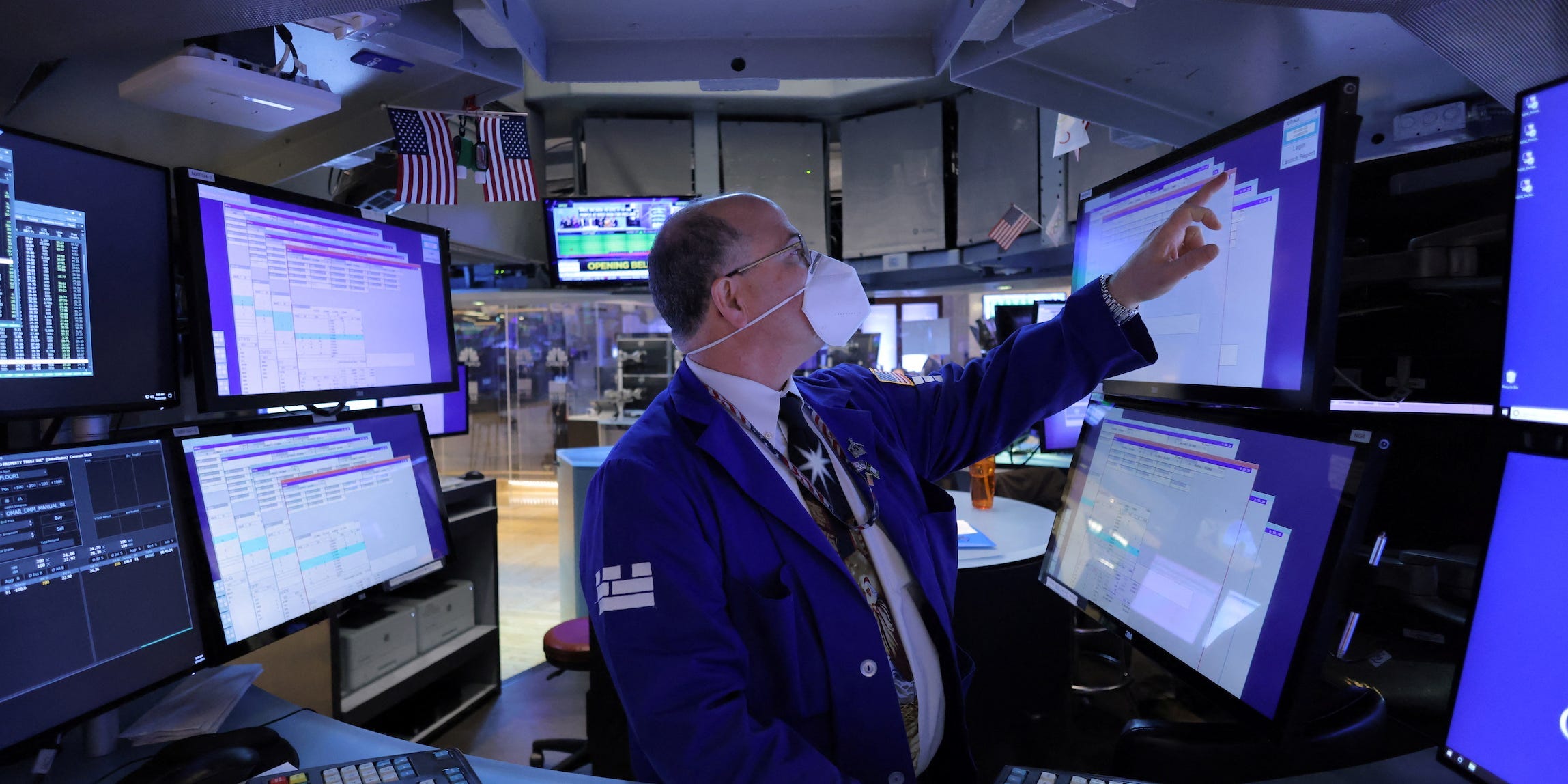
- US stocks were mixed on the last trading day of January, wrapping up one of the worst months since the pandemic began.
- The whiplash in equities began with jitters that a Fed determined to curb inflation will turn aggressively hawkish.
- Mega-cap tech firms such as Alphabet, Facebook, and Amazon are all set to report this week.
- Sign up here for our daily newsletter, 10 Things Before the Opening Bell.
US stocks were mixed on the last trading day of January — wrapping up one of the worst months for equities since the pandemic began — as investors braced for more fourth-quarter corporate earnings amid a more hawkish Federal Reserve.
The benchmark S&P 500 and the Dow Jones Industrial Average slipped. The tech-heavy Nasdaq 100 edged higher after surging more than 3% on Friday.
Here's where US indexes stood shortly after the 9:30 a.m. ET open on Monday:
- S&P 500: 4,424.88, down 0.16%
- Dow Jones Industrial Average: 34,554.10, down 0.49% (171.37 points)
- Nasdaq Composite: 13,788.32, up 0.13%
The whiplash in US equities began with jitters that a Fed determined to curb inflation will turn aggressively hawkish. That included worries the central bank may hike rates and start to shrink its nearly $9 trillion balance sheet — more commonly known as quantitative tightening — faster than expected this year. As a result, equities swung wildly and are on track for their worst month since March 2020.
"While last week's FOMC meeting met consensus's expectations on multiple fronts—that the FOMC will likely begin raising rates in March while tapering is scheduled to conclude in mid-March—it also reinforced the notion that we are heading into a period of greater uncertainty from a forward guidance standpoint," Morgan Stanley strategists said in a note Monday.
They continued: "Every meeting is a 'live' one from a rate hike standpoint, and while our economists don't see a 50 basis points hike coming in March, it is a possibility at later meetings."
Meanwhile, earnings season continues with mega-cap tech firms such as Alphabet, Meta Platforms' Facebook, and Amazon set to report this week.
Now on the third week of earnings season, 165 S&P 500 companies (50% of index earnings) have reported, according to Bank of America on Monday. However, fourth-quarter consensus EPS is tracking 2% above where it stood on January 1, far weaker than prior quarters since the pandemic when EPS was above 11% on average versus the consensus by this time, the bank added.
"The demand hit from Omicron has been largely contained in services spending, but the indirect impact on supply and inflation proved to be a bigger headwind to earnings," said Savita Subramanian, Bank of America's equity and quant strategist.
The 10-year Treasury yield fell to 1.803% from Friday's 1.779%. Bond yields move inversely to prices.
Oil prices hovered near seven-year highs as tensions over Russia and Ukraine are still attracting the market's attention ahead of the OPEC+ meeting on Wednesday to discuss a March production increase. Many banks have predicted the commodity may soon peak at $100 a barrel.
West Texas Intermediate crude oil rose as much as 0.87% to $87.54 per barrel. Brent crude, oil's international benchmark, jumped as much as 1.27% to $91.17 per barrel, and is headed for its best January in at least 30 years.
Gold rose 0.36% to $1,795.81 per ounce.

